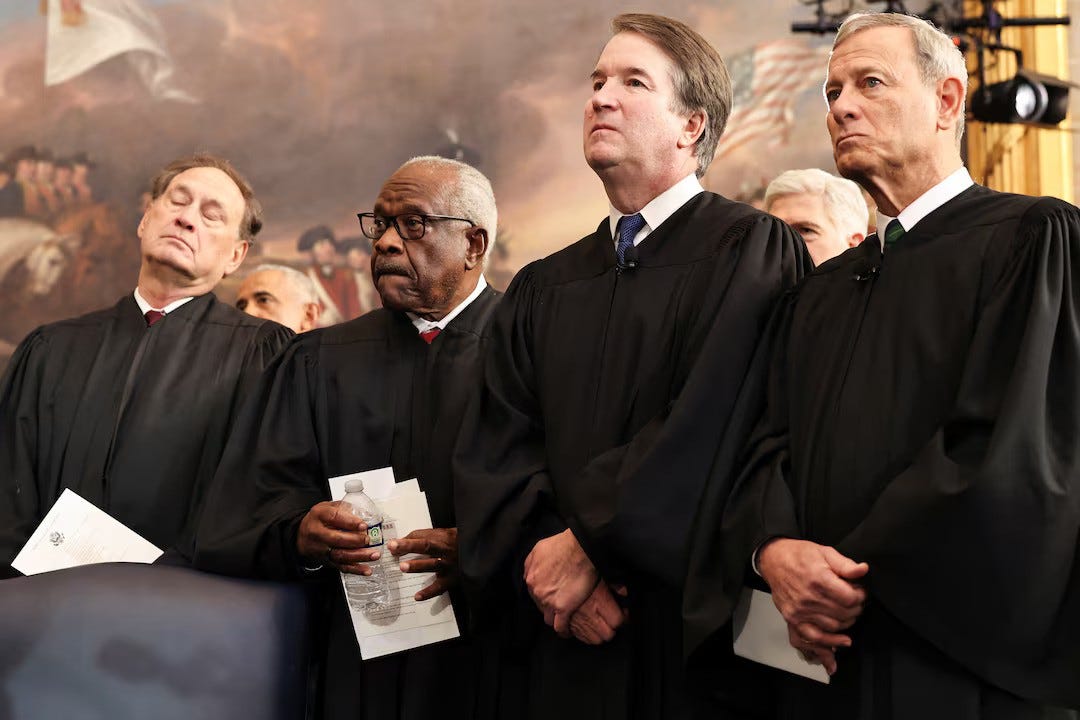Donald Trump, a Man-Made Crisis
Why and How the President Ignores the Rules of Law
The world stands aghast, as a United States president runs like a loose horse through all diplomatic norms, knocking over treaties, playing tariff games with executive orders, interfering in peace processes, and overturning legal norms within his own country.
And no one understands, as Humpty-Dumpty continues to sit on his wall.
Let me try to explain the inexplicable. The three branches of government—executive, legislative, and judicial—aren’t working as intended right now. Designed to create checks and balances across the three branches of government, the system was built upon cooperation and compromise. But extreme polarization within our two-parties means those checks and balances are now often used simply to stall or attack the other side.
Partisan Gridlock has impacted the Legislative Branch. Congress often struggles to pass laws because of deep political division, essentially a breakdown of more normal bipartisanship. Unable to work out their differences, both parties are (and have long been) more focused on blocking each other than collaborating.
Executive Overreach occurs, as presidents from both parties have increasingly turned to executive orders and emergency powers to bypass one do-nothing Congress after another, raising concerns about too much power in the executive branch.
Our third branch of government, the Supreme Court, is seen by many as politically biased, especially since successive Republican nominations confirmed a 6-3 rightwing majority on the bench. Recent controversial rulings have eroded public trust in its political independence.
As a result, growing public distrust feeds upon itself, as many Americans feel the system serves elites, not the public at large, which undermines confidence in all three branches.
40% of registered voters claim independence from either party and voting itself has shrunk to less than two-thirds of those eligible. When comparing turnout among voting-age populations in recent national elections in 50 countries, the U.S. ranks 31st.
Our crisis is foundational. No Founding Father ever expected that a voluntary breakdown might occur on any of the three legs upon which our democratic republic stands.
Technically, we are continually reminded that no one is above the law, including the president.
However, in practice, a president can sometimes delay, defy, or dodge court orders — even Supreme Court rulings — because of the unique powers and protections of his office, especially when backed by political support.
Here’s how that plays out: Enforcement power over the courts is Executive. The courts don’t enforce their own rulings — the executive branch does. That means the President oversees the very machinery (Justice Department, federal law enforcement) that carries out court orders. If the President resists, it can create a constitutional crisis — but there’s no immediate police force that can arrest a sitting President.
Enter stage left, the old Executive Privilege and Immunity claim. Presidents, particularly this one, often claim executive privilege to keep communications secret, or claim immunity from certain types of lawsuits or criminal charges while in office. These claims can delay court proceedings or prevent access to evidence — even when courts try to compel them.
Presidents may not be above the law, but it seems they are conveniently parallel to it when they so choose.
Then there are the Orange Man’s time-tested delays through appeals and legal strategy. When a court (even the Supreme Court) issues an order, a president’s legal team can appeal the ruling, delay compliance through legal arguments, and run out the clock, especially if it’s near the end of a term.
This means court orders can take months or years to enforce — and if the political winds shift, they may never be enforced. Thus, one would be well advised to pay particular attention to the 2026 mid-term elections, when control of both House and Senate are at stake.
Additionally, political considerations always come into play. The Supreme Court, while independent, is still made up of people appointed by presidents (many of them, this president). Historically, they try to avoid direct confrontations with a sitting President, especially if it would cause political upheaval. This creates wiggle room for Presidents to push boundaries, and the current Supremes are as wiggly as they come.
Finally (and perhaps mercifully), we come to impeachment, rather than arrest.
If a president blatantly refuses to follow the law, the Constitution’s remedy is impeachment by Congress, not criminal prosecution. That’s a political process — so if the president’s party controls Congress, enforcement may stall.
In short: the Orange Man isn’t legally above the law, but has tools — legal, institutional, and political — to delay, resist, or complicate enforcement, even from the highest court.
And, as they say in the courts you and I are subject to,
the prosecution rests.
That’s how it works in a Domocratic Republic
Put that in your pipe and smoke it, Vladimir.

